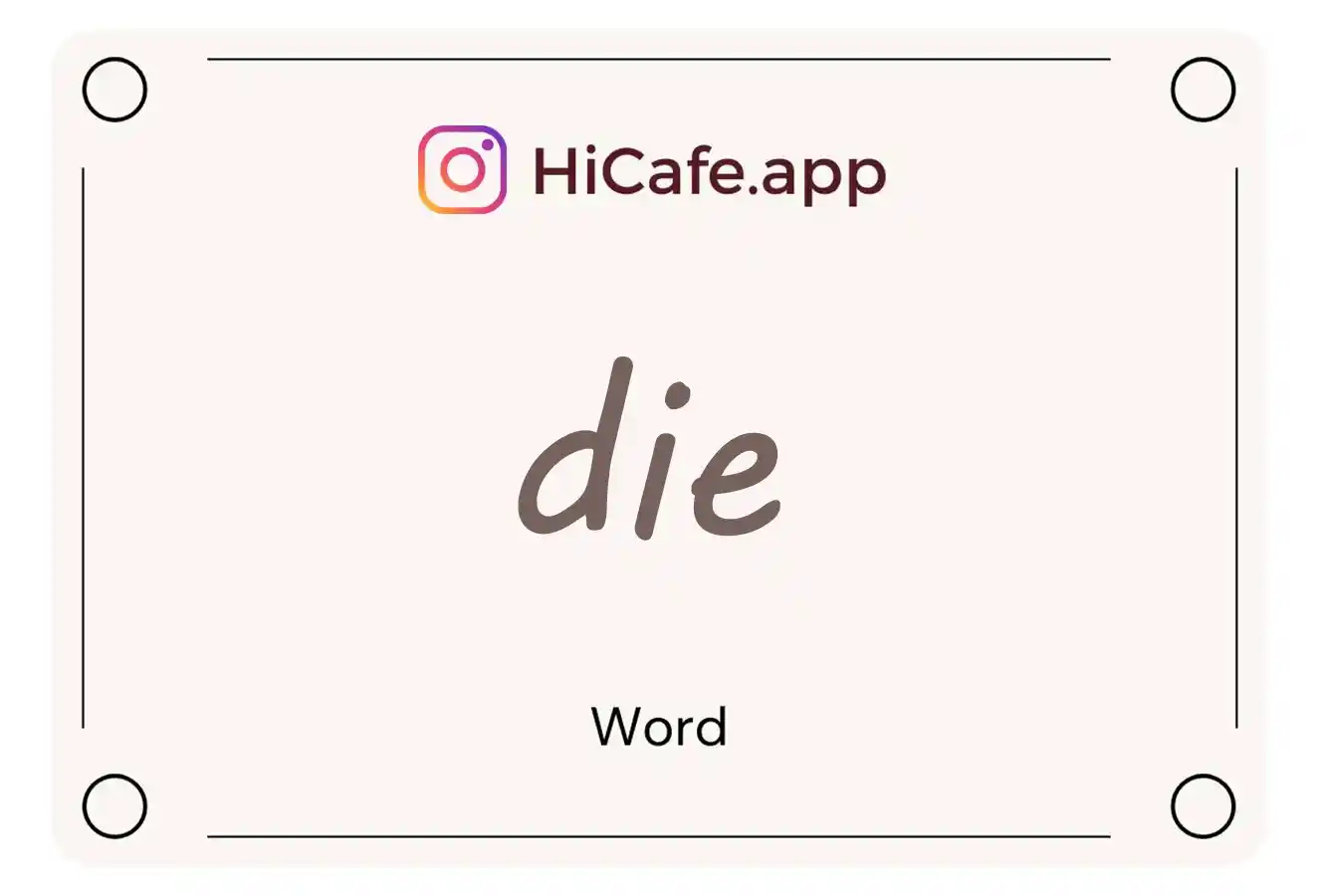
Word of the Day: Die
The verb “die” is used in English when a thing or a person stops living or operating. It’s a very, very popular word. Here are some examples of ways to use the word “die.”
| simple | past | past participle |
|---|---|---|
|
die
|
died
|
died
|
- After his father died, Don needed to find a better job to support the family.
- If you don’t take care of yourself, you might die at an early age.
- The musician, Prince, died in 2016.
- Everyone was sad to hear that he had died.
- If you don’t give water to a plant, it will die.
- Everyone dies eventually.
- The battery in my car died.
- My phone is dying. (The battery is getting weaker.)
- My phone just died on me.
The word “die” is commonly used to exaggerate a condition which does not involve death but does indicate a bad situation:
- I’m dying for something to drink.
- That dog is dying for attention.
- Sandra says she’ll die if she doesn’t do well on her test.
- We’re dying to find out what’s going to happen next. (Use this for a movie, TV show, podcast, book, or real-life situation.)
- I just about died when I heard the news.
- Some parts of the retail industry are slowly dying as they face competition from Amazon.
- Coal mining is a dying industry because coal can no longer compete with solar and wind as a source of energy. (The word “dying” in this sentence is an adjective.)
- That’s to die for. (This is a popular expression meaning that something is very attractive or desirable. This pizza is to die for.)
- I feel like I’ve died and gone to heaven. (This expression means that a person is very happy with a present situation.)
Essential English Dictionary
Visit the Popular English Words Beginning with D page to see the list of all words starting with letter D. For seeing the HiCafe dictionary, visit the Popular English Words with Meaning page.


